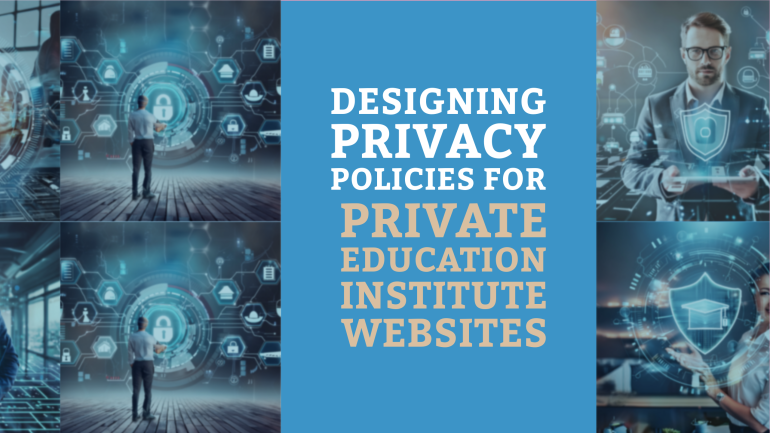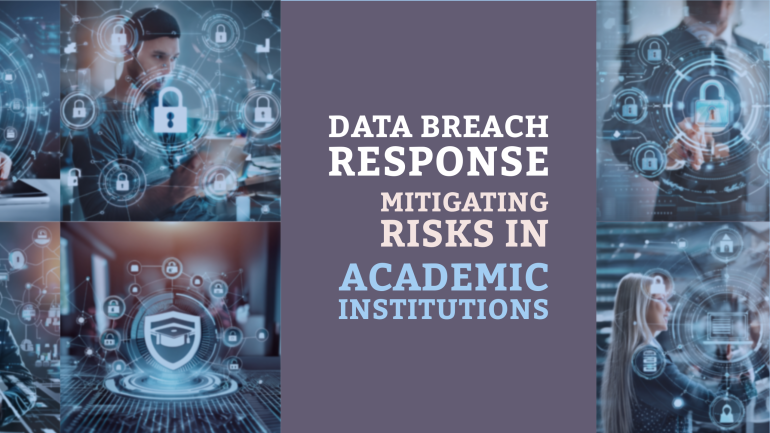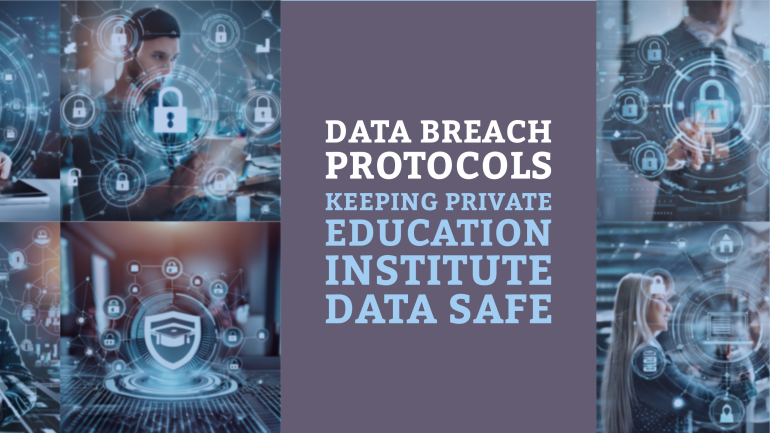Table of Contents
You may also interested:
TL;DR: Designing Privacy Policies for Private Education Institute Websites
- Importance of Clear Privacy Policies: Ensuring that privacy policies for private education institute websites are transparent, concise, and easy to understand is vital to build trust with users.
- Compliance with Regulations: It is crucial for educational institutions to adhere to data protection laws and regulations when designing their privacy policies to protect user data.
- Information Collection and Use: Clearly stating what personal information is collected, how it is used, and with whom it is shared helps in establishing transparency and trust with the website users.
- Data Security Measures: Including details about the security measures in place to protect user data such as encryption, firewalls, and regular security audits can reassure users about the safety of their information.
- User Rights and Control: Providing information about user rights, such as the ability to access, correct, or delete their data, and options for opting out of certain data collection practices empowers users and demonstrates respect for their privacy.
#Privacy in the digital age is a significant concern for private education institutes. Crafting a meticulous privacy policy for their websites is paramount to safeguarding sensitive student and faculty information. This blog post research into the key considerations and best practices for designing robust privacy policies that comply with regulations and establish trust with stakeholders.
Principles of Privacy in Education
Understanding Data Protection Laws
For private educational institutions, compliance with data protection laws is paramount. The institution must clearly understand the regulations set forth in laws such as the Family Educational Rights and Privacy Act (FERPA) and the Children’s Online Privacy Protection Act (COPPA) to ensure the privacy and security of student data.
Ethical Considerations for Student Data
Any collection and use of student data must be carried out ethically and responsibly. This includes obtaining consent from parents or guardians, only collecting data that is necessary for educational purposes, safeguarding the data from unauthorized access, and ensuring that the data is accurate and up to date.
This approach ensures that student privacy is protected and that the institution is acting in the best interests of its students. By adhering to ethical guidelines, the private educational institute can build trust with parents, students, and the wider community.
Creating a Comprehensive Privacy Policy
Identifying Information Collected by Private Institutes
Little do we realize the vast amount of information private education institutes gather from users visiting their websites. From basic details like name and contact information to more sensitive data such as browsing history and academic records, these institutions have access to a plethora of personal information.
Drafting Clear and Concise Privacy Statements
Information presented in a privacy policy should be crystal clear and easy to understand for users. It is vital to highlight the types of data collected, the purpose of collecting it, how it will be used, and the security measures in place to protect it. Statements should be free from technical jargon and provide a comprehensive overview of the institute’s data practices.
Another crucial aspect of drafting privacy statements is transparency. Institutes must clearly outline how user data is shared with third parties, if at all, and under what circumstances. Providing this transparency helps build trust with users and ensures compliance with privacy regulations.
Implementing and Enforcing Privacy Policies
Staff Training and Awareness
Despite having robust privacy policies in place, their effectiveness relies heavily on staff understanding and adhering to them. Any private education institute must prioritize ongoing staff training and awareness programs to ensure that all employees are well-versed in the importance of data protection and their role in upholding privacy standards.
Regular Policy Reviews and Updates
Reviews and updates of privacy policies are important to adapt to the evolving privacy landscape and comply with changing regulations. Awareness of the need for regular reviews and updates ensures that privacy policies remain relevant and effective in safeguarding sensitive information collected by private educational institutions.
Challenges and Best Practices
Balancing Transparency with Security
Once again, designing privacy policies for private education institute websites presents a unique challenge of balancing transparency with security. For educational institutions, it is crucial to provide clear and comprehensive information about how student data is collected, used, and protected while ensuring that sensitive information remains secure from potential breaches.
Engaging with Parents and Students
For educational institutions, engaging with parents and students is crucial to build trust and foster a collaborative relationship. By providing regular updates on privacy policies and data handling practices, schools can involve parents and students in important discussions regarding their privacy and security online.
Engaging with parents and students can also involve seeking feedback and addressing any concerns they may have regarding the use of their personal information. This open communication approach can help strengthen the overall privacy framework of the institution and ensure that all stakeholders are informed and involved in the process.
Summing up
Conclusively, designing privacy policies for private education institute websites is crucial in safeguarding students’ and faculty members’ personal information. By clearly outlining data collection practices, storage methods, and usage policies, these institutions can build trust with their online community and comply with data protection regulations. It is imperative to regularly update and communicate these policies to ensure transparency and accountability in handling sensitive data. Ultimately, prioritizing privacy in website design enhances the reputation and credibility of the educational institution while prioritizing the security and privacy of its users.
FAQ
Q: Why is designing privacy policies important for private education institute websites?
A: Designing privacy policies is important for private education institute websites to ensure that personal information of students, parents, and staff is protected and used responsibly.
Q: What should be included in a privacy policy for a private education institute website?
A: A privacy policy for a private education institute website should include information on the type of data collected, how it is used, who has access to it, and the security measures in place to protect it.
Q: How can a private education institute ensure compliance with data protection regulations in their privacy policy?
A: To ensure compliance with data protection regulations, a private education institute should regularly review and update their privacy policy, obtain consent for data collection, and provide clear information on how personal data is handled.
Q: How can a private education institute communicate their privacy policy effectively to website users?
A: A private education institute can communicate their privacy policy effectively by making it easily accessible on their website, using clear and simple language, and offering options for users to consent to data collection and usage.
Q: What are the consequences of not having a comprehensive privacy policy for a private education institute website?
A: Not having a comprehensive privacy policy for a private education institute website can lead to breaches of data privacy, loss of trust from students and parents, legal consequences, and damage to the institute’s reputation.




